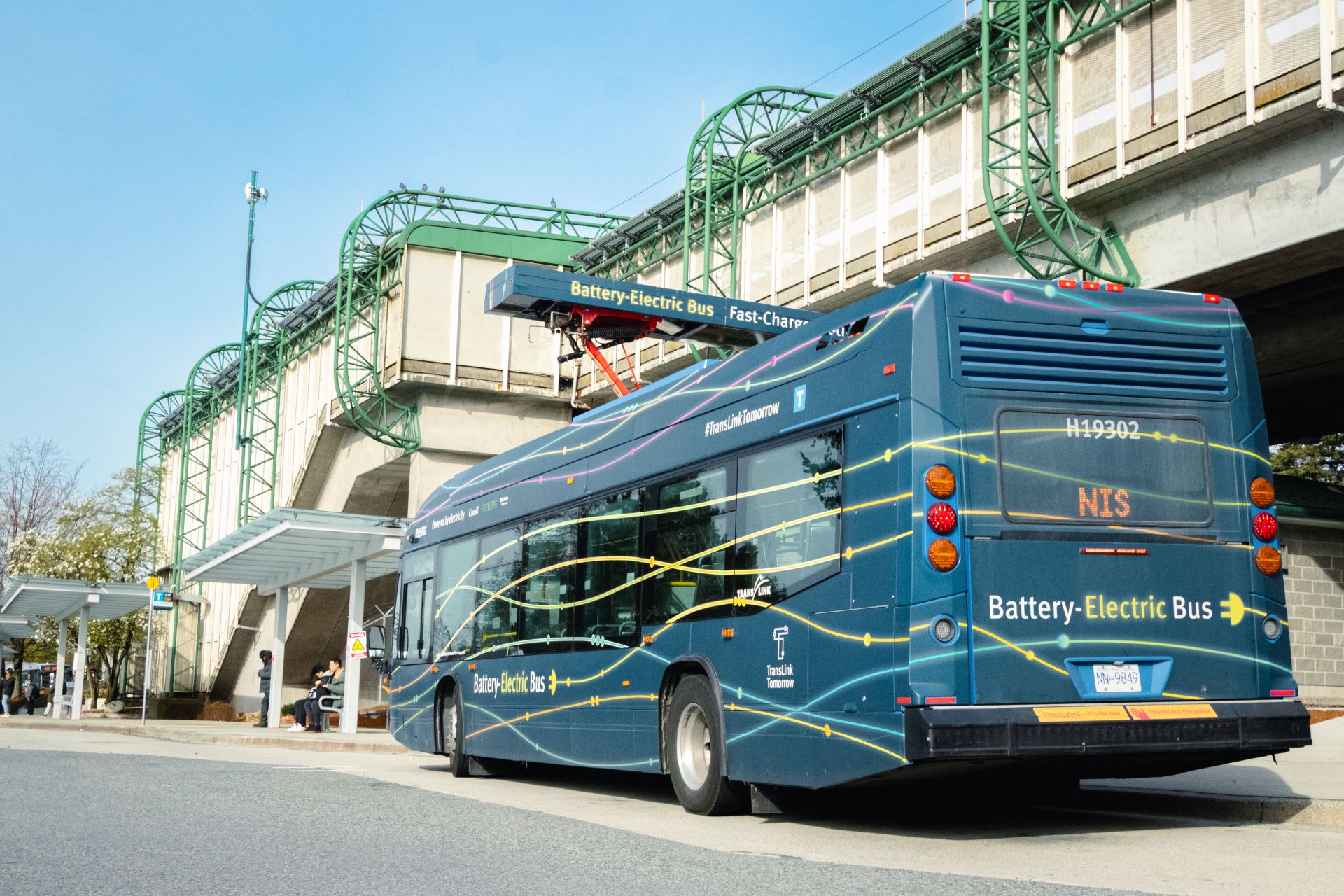TransLink seeks innovative solutions for transportation decarbonization
TransLink seeks innovative solutions for transportation decarbonization

Do you have ideas for how to rapidly reduce the amount of greenhouse gases emitted by transportation in Metro Vancouver? If so, we want to hear from you!
TransLink Tomorrow is calling all innovators and entrepreneurs for their creative solutions to tackling Transportation Decarbonization as part of our annual Open Call for Innovation.
Now in its fifth year, our Open Call for Innovation is looking for creative proposals that include electrification, renewable fuels, carbon capture for fleets, zero-carbon energy storage solutions, and any other innovative ideas that step up and answer the challenge statement.
Challenge Statement
How can TransLink support a rapid decarbonization of transportation in Metro Vancouver in support of our region’s ambitious 2030 climate targets?
The submission period for this year’s topic of is now open through Sept. 30 at translink.ca/opencall.
What’s in it for you?
If selected, we’ll work with the you to fund, incubate, and implement your idea. Giving you exclusive, insider access to TransLink supports to test or demonstrate the idea, along with the opportunity to pilot the idea on a larger scale in partnership with us.
Previous Open Call for Innovation partnerships:
In its inaugural year, TransLink partnered with Modo, Mobi by Shaw Go, and Evo Car Share for the Shared Mobility Pilot Program. It tested the user experience and technical integration of tying multimodal journeys together with a Shared Mobility Compass Card over an 11-month period.
In 2021, TransLink partnered with Transit app to trial exclusive capacity predictions on buses giving customers the ability to ride with confidence and comfort. Predictions generated by the app are based on historical trends and Automated Passenger Counter (APC) data collected from TransLink’s bus network. Providing bus capacity predictions allows customers to see if there is room to ride on a bus before boarding.
So, what’s next?
That’s the question. It could be your innovative idea.
We’re accepting ideas from anyone, but to stimulate grass-roots innovation in the new mobility field, TransLink encourages tech start-ups and non-profit organizations to submit.
Why transportation decarbonization matters
Tackling the climate emergency is a global collective and collaborative effort, so we want to work with you.
The United Nations has said “our window to avoid climate catastrophe is closing rapidly.” The Paris Agreement set the goal to limit global warming to well below 2° Celsius compared to pre-industrial levels.
As planners of the regional transportation system, TransLink plays a critical role in addressing the climate emergency.
We have mapped an aggressive path to zero greenhouse gas emissions (GHGs) as part of our Climate Action Strategy adopted in 2022. It sets out how we will move to net-zero GHGs and build a more climate-resilient transit system by 2050. We have also adopted Transport 2050, the regional transportation strategy, and are working on a Regional Transportation Climate Action Plan.
Today, we operate one of the largest all-electric fleets in Canada and the United States. The SkyTrain system is powered by electricity, and we are the only system in Canada that operates trolley-electric buses. We also currently have four battery-electric buses in our fleet with 15 additional buses on the way.
So, when more people take transit, walk, or bike instead of driving, they are taking one of the biggest steps to shrinking their carbon footprint.
But we’re eager to collaborate with you to do more to help achieve the region’s ambitious climate goals and do our part as global citizens.
TransLink Tomorrow is our commitment to continuously explore, test, and implement innovative ways to improve mobility in Metro Vancouver.






Regular, retired, guy here with a suggestion, maybe more. Check out, a book, This I Know, by Terry O’Reilly. Especially note, page fifty-one, start at ow think marketing, lower right hand corner.
Don’t use transit now, as I am retired and do not go anywhere in particular on a regular basis. I did use a bus to go to work, for over twenty five years. In between I flew to every, Province and drove to many outlying communities, same work.
Are bus routes to various needs? I am sure they are. Love the electric buses, powered by overhead wires. Picking up people is import. Dropping them off close to where they work is important as well. In Ottawa it was easier, thirty thousand people wanted to go downtown every day.
More shade at bus stops, water misters at bus stops might make people feel taking a bus is a form of pampering.
Perhaps some areas with commercial vehicle lanes would help.
Would be great to support collaborative solutions for active transportation.
1) encourage cycling to work/ in the city by making it easier to get part of the way into town with your bike on transit – and then it’s easier to bike the rest of the way.
2) work with municipalities to encourage cycling infrastructure such as separated bike lanes
3) transit in the downtown core should be free
5% of all gas is wasted by having low tire pressure on cars, air used to be free at gas stations and that encourages people to keep their tires at proper pressure, around 10 years ago the stations started charging a dollar (at first they said it went to charity but now they just keep it).
I would legislate that all gas stations must provide free air, combine that with a PR campaign to teach drivers to check their tire pressure once a fortnight or so